United States (Washington D.C.)
“Hip Hop Caucus represents the streets, it represents those who have a message to tell and who won’t be quiet, who will force change to actually happen in a positive way.” – Mustafa Santiago Ali
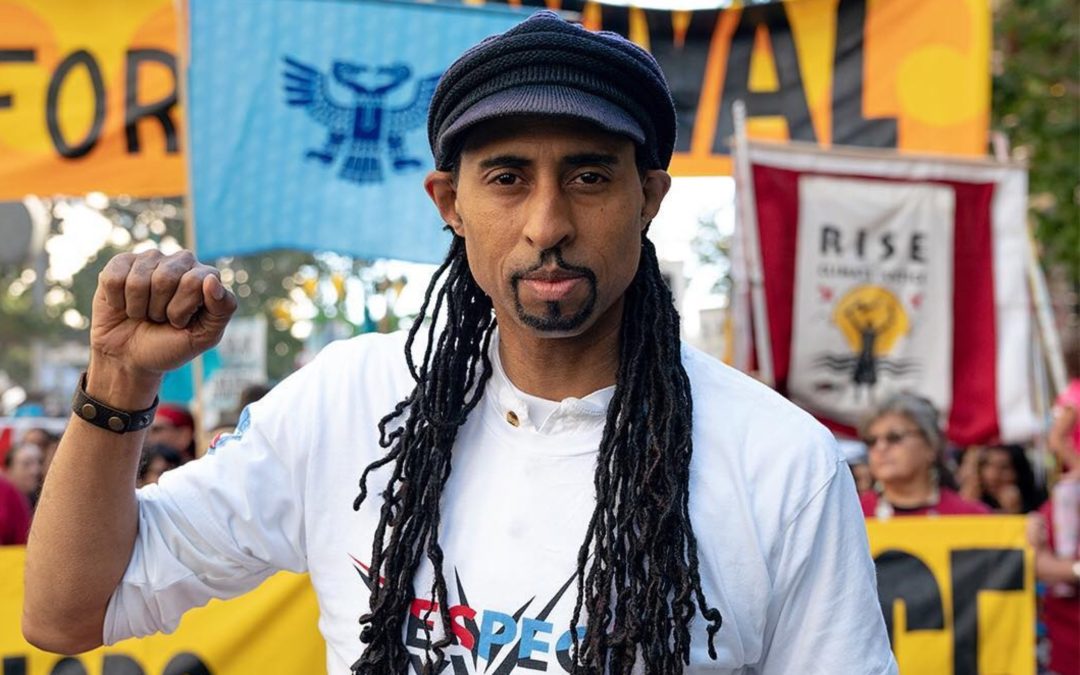
What happens when a reverend, a union network, and a bunch of hip hop legends all start rapping from the same hymn sheet? A Hip Hop Caucus is what: a collective of musicians, activists, spokespeople and local leaders, ready to use the power of hip hop to unite and empower communities who are impacted first and worst by injustice.
It all started in 2004, when Jay-Z’s ‘Voice Your Choice’, Russell Simmons’ Hip Hop Summit Action Network, P. Diddy’s Citizen Change (Vote Or Die!), and AFL-CIO’s ‘Hip Hop Voices’ were merged as a single united front: the Hip Hop Caucus. Reverend Lennox Yearwood took the helm of what he calls a “a civil rights organisation for the 21st century”: a movement driven by hip hop that would work up and down the country to engage people who felt left out of politics.
The name says it all. Hip Hop Caucus is a collective united by the music, dance and dress of hip hop – but it’s also about being ‘current’ (‘hip’), about ‘moving’ (‘hop’), and about ‘doing it together’ (‘caucus’).
Their first major campaign – now in its tenth year – was Respect My Vote. The Caucus wanted more people to feel engaged in the civic process, and feel that their voice could and should be heard. In 2008, the campaign broke records for registering the most voters in one day: 32,000 people across 16 U.S. cities.
Their other focus is environmental justice. Hip Hop Caucus rallies and supports communities worst affected by the impacts of climate change, helping them to influence policy and increase the resilience of their local areas. Their Think 100% podcast – co-hosted by Grammy nominated actress Antonique Smith – spreads the climate justice message, and their People’s Climate Music sees the likes of Jeremih and Taboo put important environmental messages to a beat.
So why hip hop? The Caucus’s Vice President, Mustafa Santiago Ali, explains: “so often, people approach folks to get engaged with voting who don’t necessarily look like them, don’t come from their communities, don’t understand the challenges and the opportunities that exist in those communities. Let’s say you see Jay-Z or Beyoncé or Antonique Smith or Elle Varner, who are saying hey, this issue is important, this issue can help to transform our community, this issue can help us to have power again. That is a transformational moment that you respect because of their artistry, and because you see yourself reflected in them – they come from where you come from. That makes real change happen.”
Hip Hop Caucus is all about finding power in new places: not just the corridors of Capitol Hill, but the streets and homes of communities across the U.S. It’s locally, Mustafa says, that the most relevant knowledge is held – and needs to be unlocked.
“Unfortunately, when you look around at some of the [climate justice] movements, you may not see a lot of folks of colour – they may not necessarily have felt like there was a space and a place that was inviting to them. A lot of people have a lot of letters after their name and think that they know what’s best, but we know that communities know many of the solutions that are necessary. We’re making sure that people understand that frontline communities – the ones getting all of the negative public health impacts – have to be a driver in that space, their voices have to be framing out policy. We make sure that more folks of colour are in positions where their voices can be heard and their innovation can help.”
And it’s for the same reason that Hip Hop Caucus’s actions and strategy vary widely across the country. While some communities may benefit from a town hall where strangers facing a shared problem can come together, others may need connecting to their congressperson to speak directly to decision makers.
Meanwhile, the Caucus bring stories from the community into places they wouldn’t normally be heard. At 2018’s Global Climate Action Summit, Hip Hop Caucus worked with If Not Us Then Who? to create Our Village, which included an immersive, virtual reality experience sharing the stories of people on the front lines of climate change with global leaders and policymakers.
Creativity, Mustafa adds, is where the power to change really lies: “James Baldwin once said that if I love you I have to make you conscious of the things that you don’t see, and probably also the things that you don’t want to see. So through poetry and writing, through the visual and audio arts – all of these things come together to make us see the things that we don’t want to see, but also know that it’s okay to see these things because we have the power to actually make real change happen. That’s the beauty of culture.”
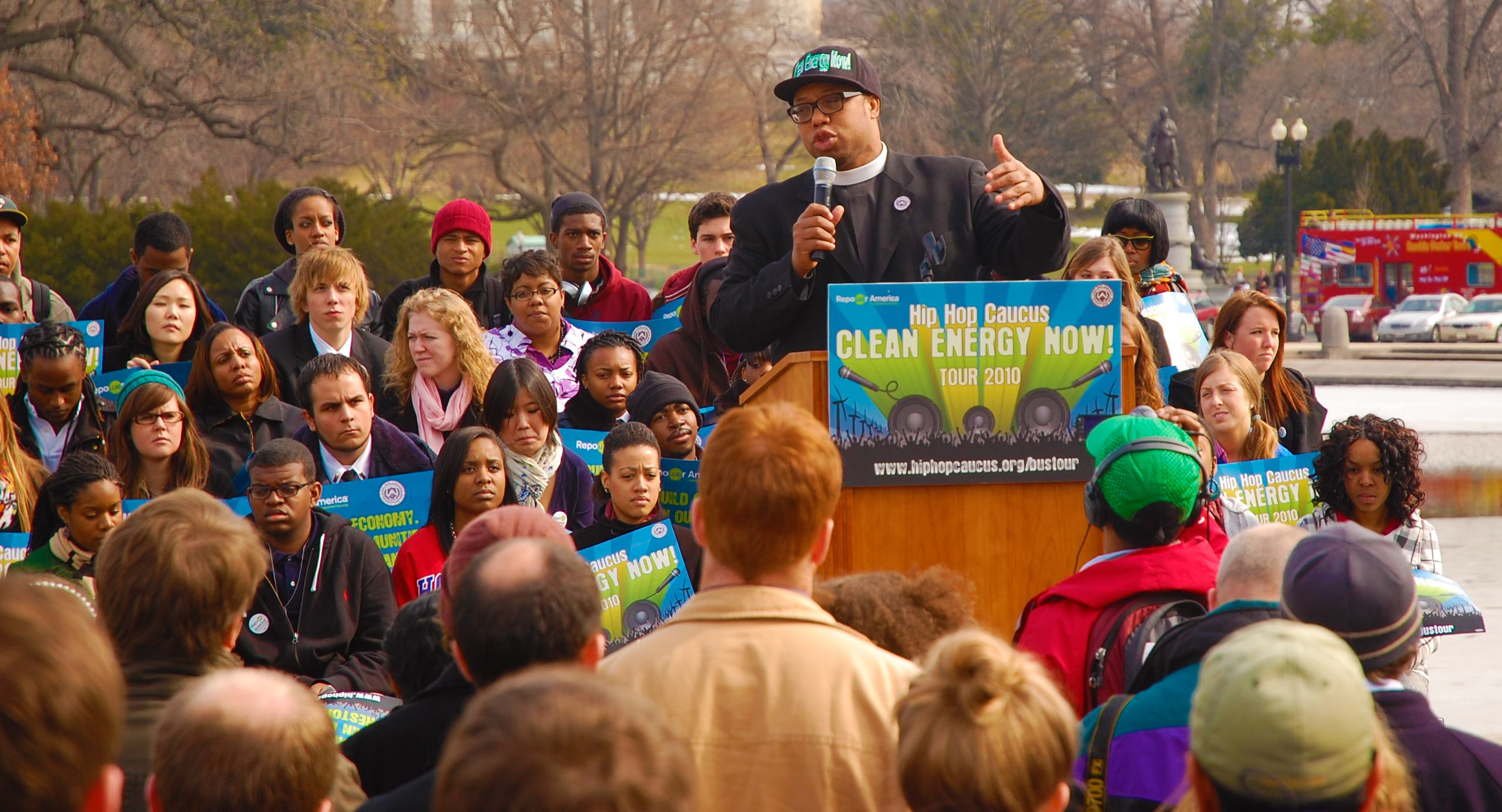
AtlasAction: Get stuck in. Become a member of the Caucus, listen to the coolest show on climate change, or buy some people’s climate music.
Read more ► As part of CultureFutures, we spoke to Hip Hop Caucus co-founder Mustafa Santiago Ali in their FutureLeague interview: Keeping politics real
Bio
Nature-geek, urban forager and all-round wordy sort. Freelance strategist and copywriter for people who care about the future. Often found reading while walking.
Project leader
Reverend Lennox Yearwood Jr., President and CEO
Partners
This project has been selected as part of CultureFutures, a new storytelling project that maps creative and cultural projects with a social mission – and the artists, collectives and entrepreneurs behind them.
Atlas of the Future is excited to join forces with Goldsmiths Institute of Creative and Cultural Entrepreneurship and the British Council Creative Economy.
Support the Atlas
We want the Atlas of the Future media platform and our event to be available to everybody, everywhere for free – always. Fancy helping us spread stories of hope and optimism to create a better tomorrow? For those able, we'd be grateful for any donation.
- Please support the Atlas here
- Thank you!
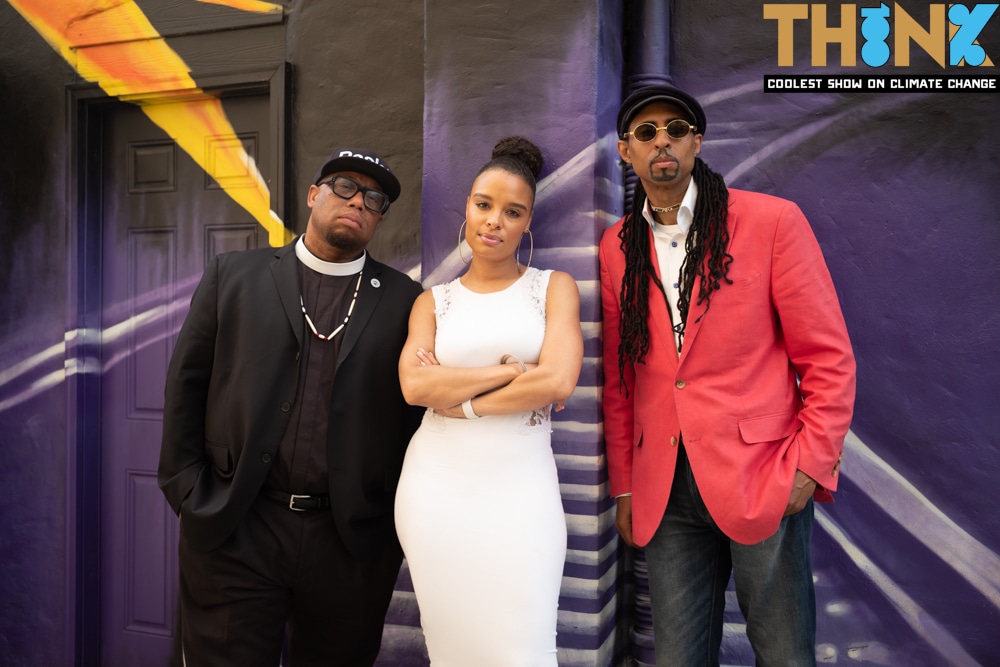
THINK is hosted by Rev. Lennox Yearwood Jr., Antonique Smith and Mustafa Santiago Ali
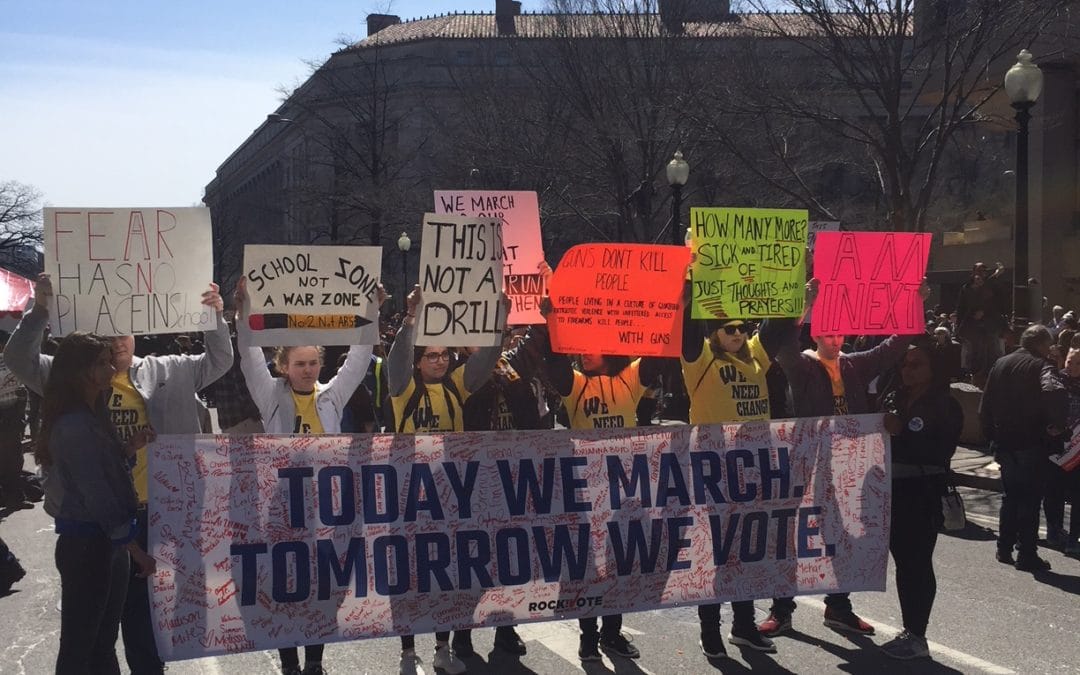
Respect My Vote! march
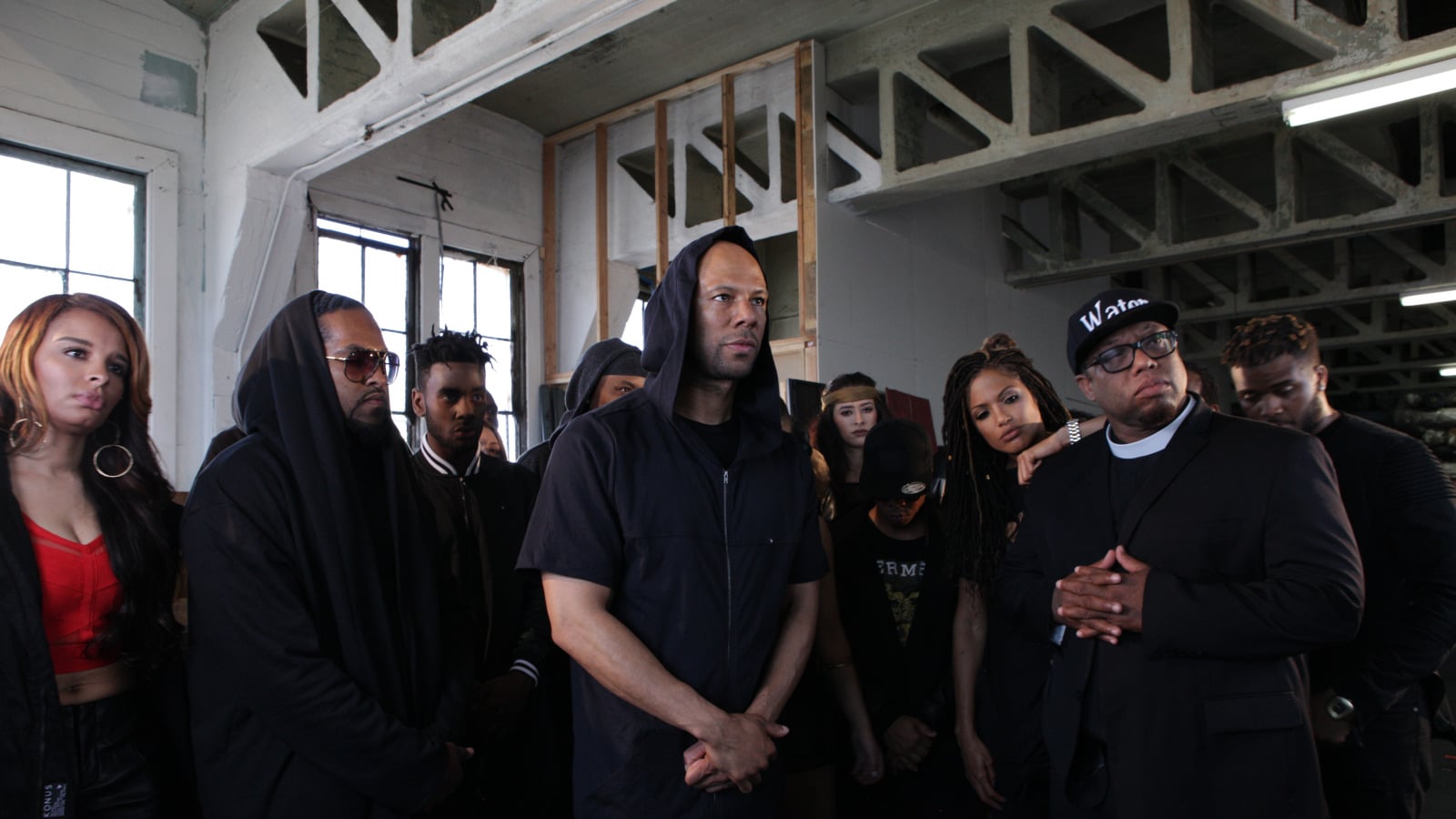
Crew




